Getting a data plan
Getting a data plan

What's coming up?
In this activity, you'll discover how internet providers offer different data plans.
You'll also learn the difference between data contracts, which require monthly payments for a set time, or pre-paid accounts that let you stop paying for internet whenever you want.
Start activityChoosing a plan
When you first buy a home internet connection or a new mobile phone, you will need to choose a data plan to go with it.
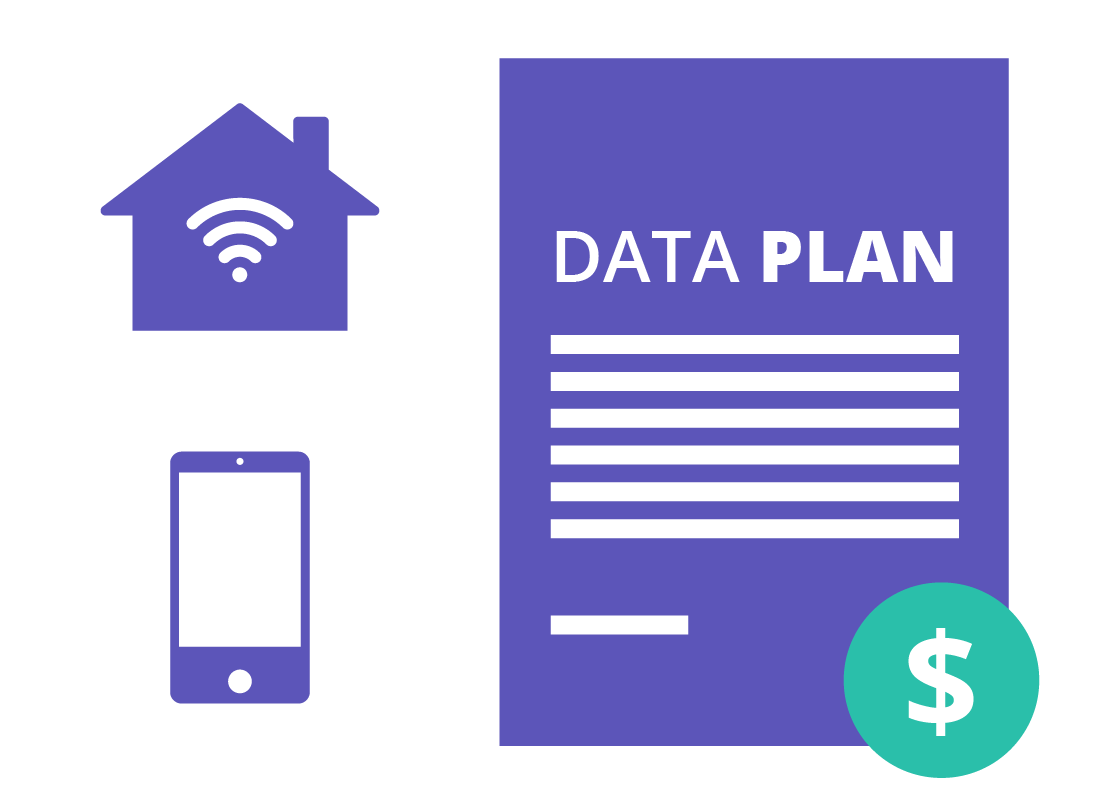
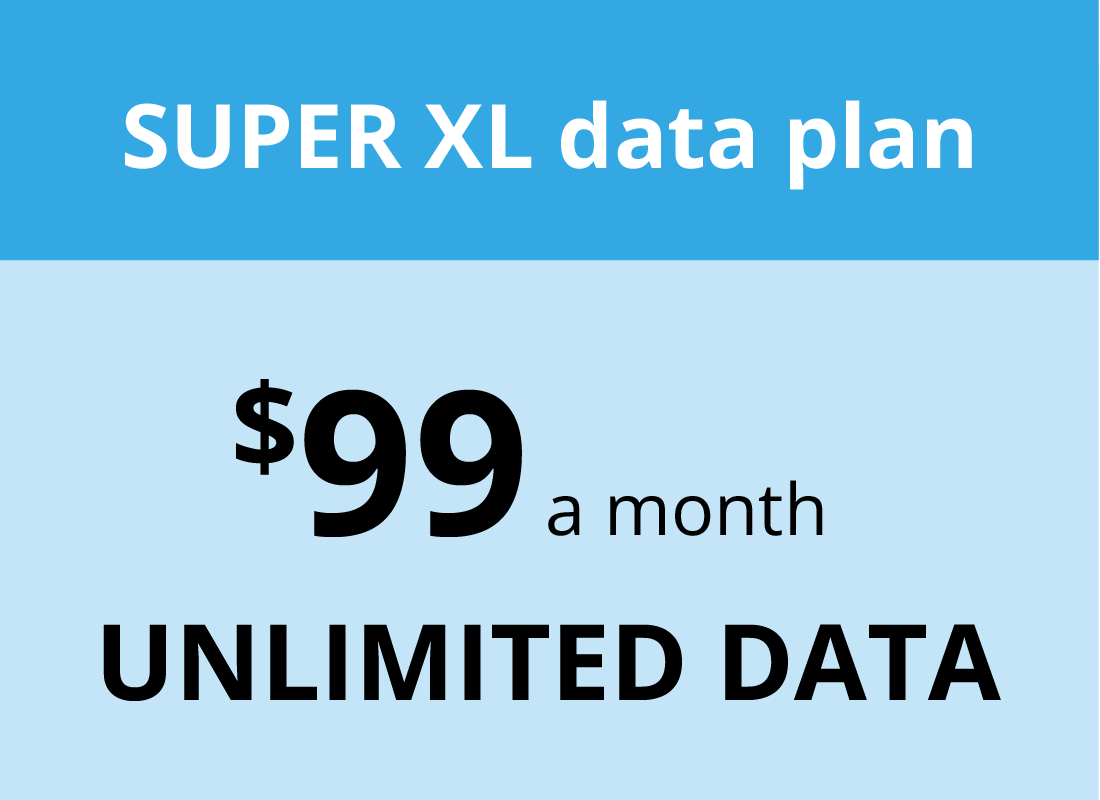
Plans for home
On a home internet connection, the amount you agree to pay each month will determine how much data you get to use or the speed of the connection. The more you pay, the more data you will get and/or the faster your data will be!
But don’t worry, you don’t have to pay a lot for home internet if you don’t want to, as some home internet plans will start from around $25 per month.
Plans for mobile phone
Like home internet, the more expensive mobile data plans offer more data. The amount of data you get each month, however, will be much less than on a home internet plan and it will cost more per GB.
The cheapest mobile data plans, or packs, tend to start at about $20 per month, depending on the provider. These are often called starter packs as they are for people who are just getting started with mobile internet and mobile data.
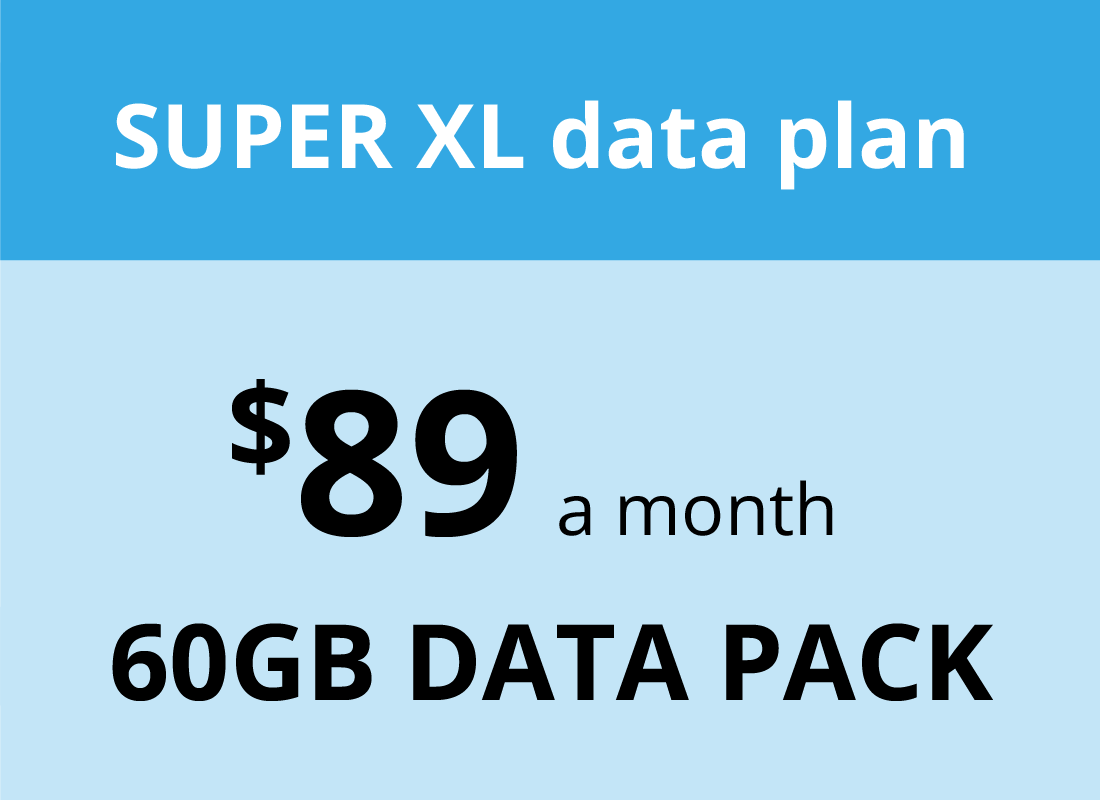
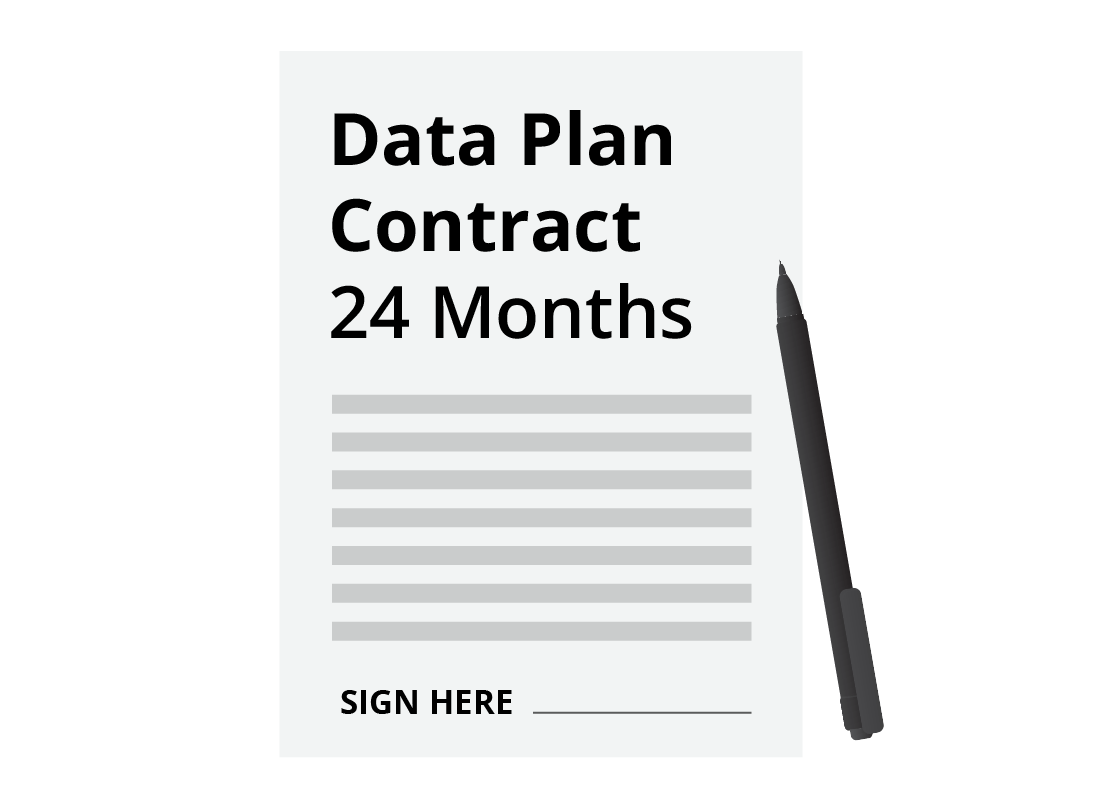
The contract, or post-paid plan
Most home and mobile internet providers ask you to sign a contract agreeing to keep paying for internet for 12 or 24 months. In return, you might get a discount, or a free mobile phone, or other incentive.
With a contracted plan, you pay a set amount at the end of each billing month. For this reason, contract plans are sometimes called post-paid plans.
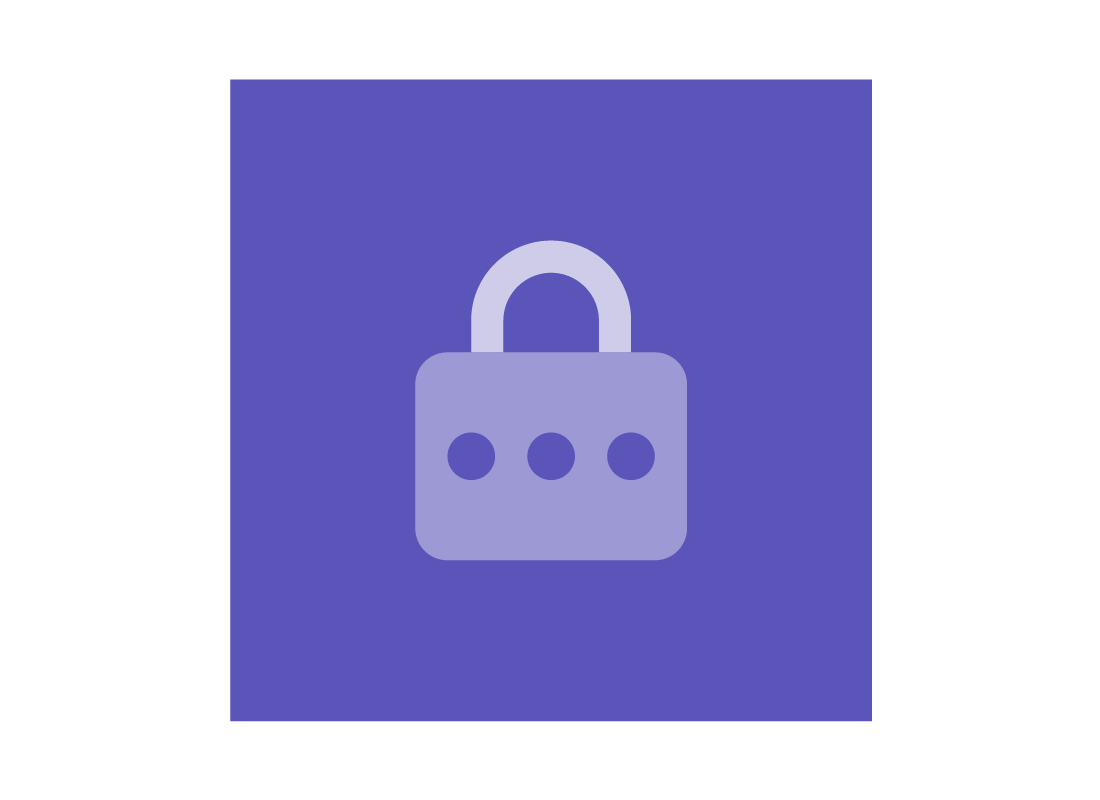
eSafety tip
With a contracted plan, if you need to stop the contract before the agreed term, you will most likely have to pay a penalty fee. Make sure you check the terms and conditions of the contract in case you want to cancel the plan.
Even better, be sure a contracted plan is the right plan for you before you sign anything. You might like to start with a pre-paid (no contract) plan (see the next slide for information) then move onto a contract later once you know more about your internet needs.
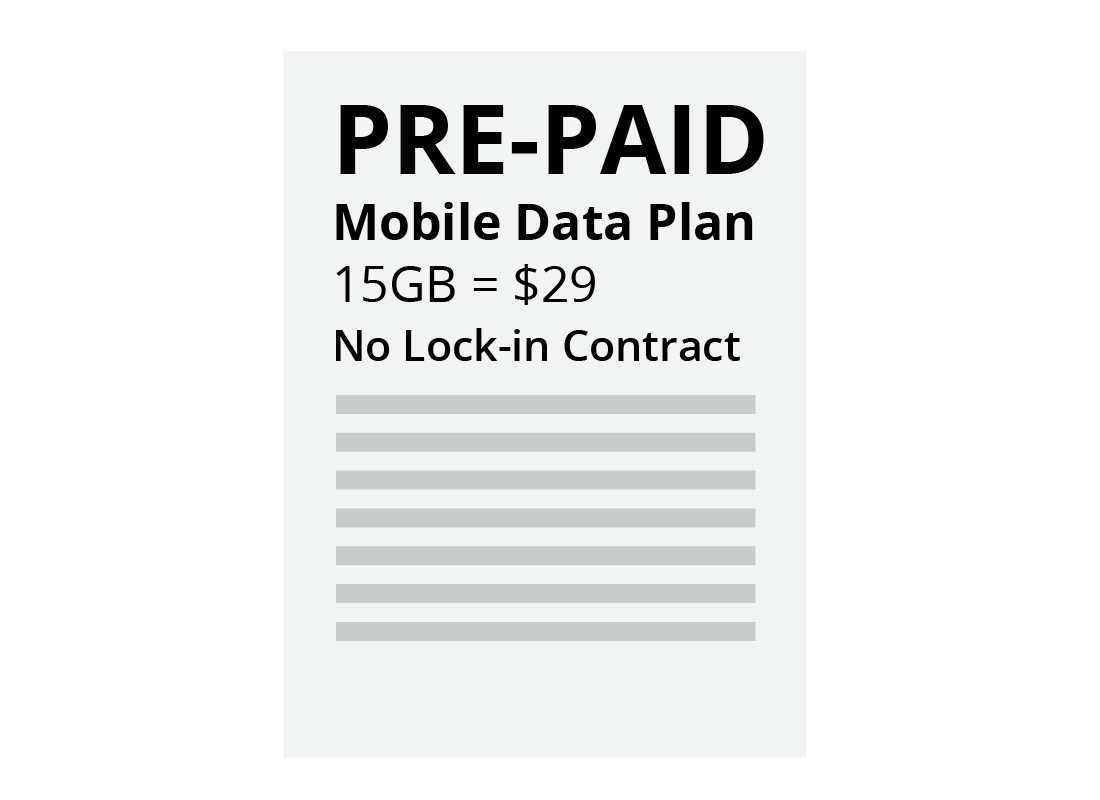
Mobile pre-paid plans
Some types of mobile data plan don’t require you to sign up for a 12- or 24-month contract. These are called pre-paid, because you pay for the data before you use it.
Pre-paid plans are for mobile data only, not a home internet connection. Pre-paid plans are usually a little bit more expensive than a contract plan, but at the end of the month you can decide if you want to keep paying.

eSafety tip
Some home internet plans don’t require you to sign up for a fixed term. Instead, you just pay a monthly fee for however long you need it.
Called flexi-plans, no-contract plans or no lock-in plans, these are often more expensive on a monthly basis, but can be handy if you move home frequently.
These plans don’t include a router, so you will need factor this into the cost if you don’t already have one.
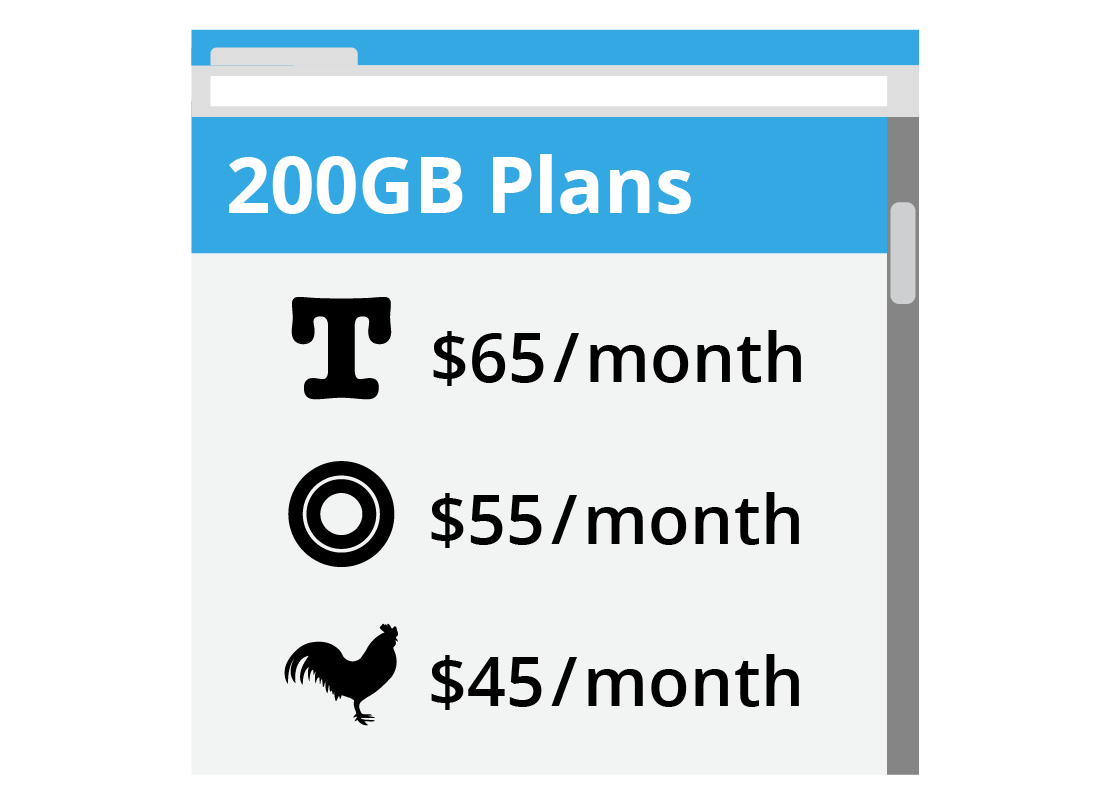
Comparing data plans
With so many types of data plan, it can be hard to know which to choose. Some websites, however, make it easier to compare plans.
Comparison sites show data, costs and contract terms from many providers and are a good starting point for choosing a data plan. Here are some comparison sites:
Buying a data plan
When you're ready to buy a data plan, you can phone a provider's customer service number, visit its website or call into the provider's shop.
It's good to know what you want to do on the internet beforehand, so you know roughly how much data your data plan should have. The provider's staff can help and suggest options, as well as explain the terms and conditions of any plan before you sign up.
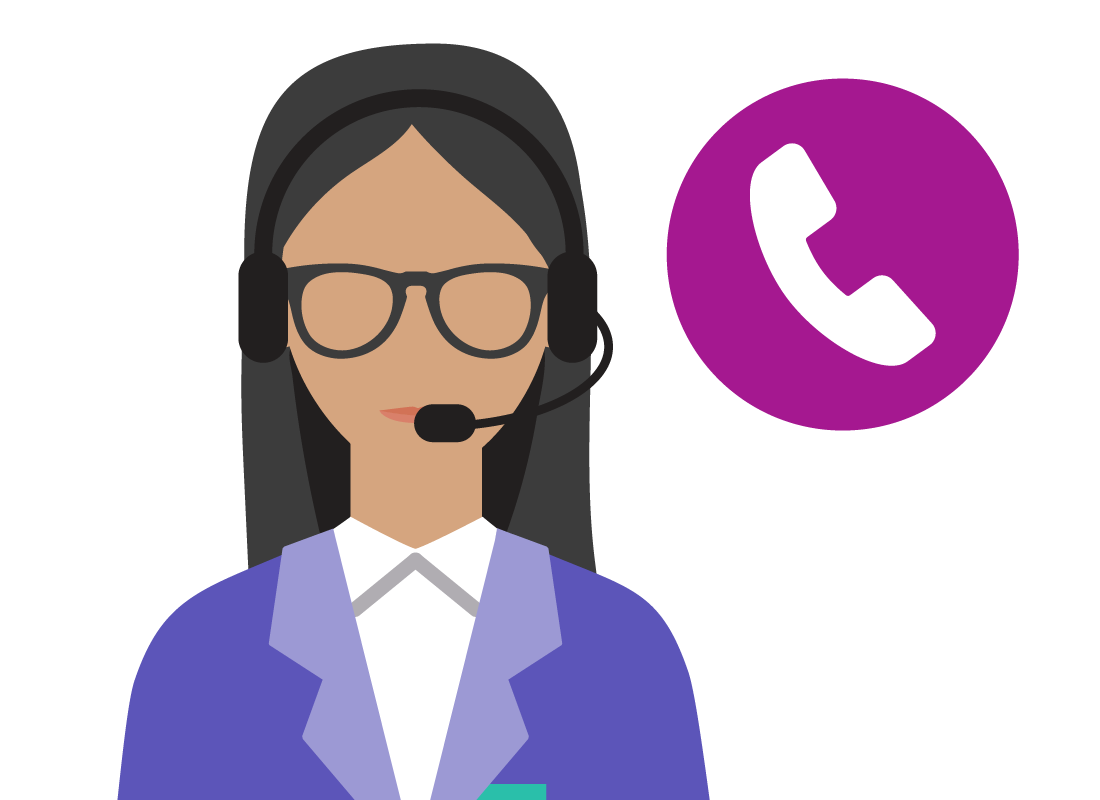
Let's check
Decide if the following statements are true or false. Click each card once to turn it over and see the answer.
Mobile data (or mobile internet) plans are cheaper than home internet plans.
Click to flip
This is false.
Mobile data is much more expensive than home data, or home internet.
Internet plans where you have to sign a contract usually offer cheaper internet services.
Click to flip
This is true.
A contract plan is usually cheaper, but you have to pay each month for the term of the contract.
Pre-paid plans are generally for mobile data only, not a home internet connection.
Click to flip
This is true.
Pre-paid plans are usually more expensive than a contract plan, but you can decide if you want to keep paying or not each month.
Well done!
You have completed the Getting a data plan activity. You've learned that internet providers sell plans that give you more or faster data, the more you pay.
Some of these plans lock you into payments for 12 or 24 months, but there are also pre-paid plans that you can stop any time you want.
Next, you'll learn more about paying for a data plan, in the Payment options for a data plan activity.
